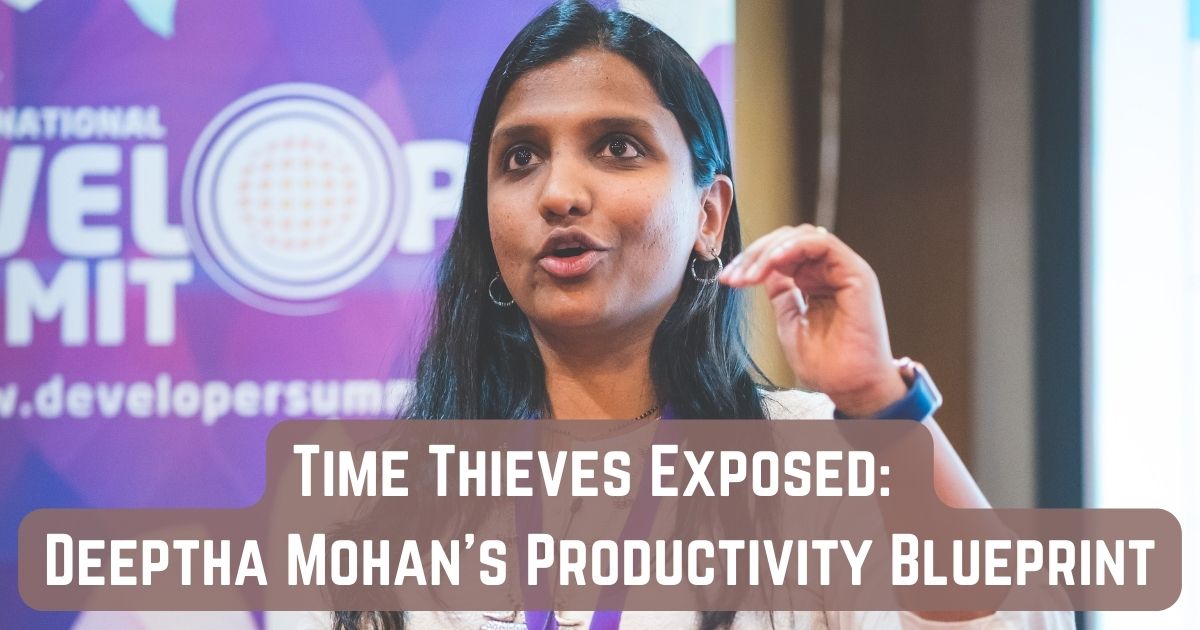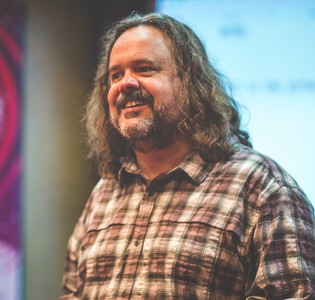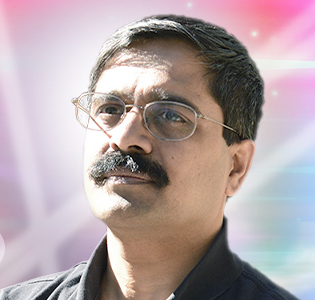
“Once again Saltmarch has knocked it out of the park with interesting speakers, engaging content and challenging ideas. No jetlag fog at all, which counts for how interesting the whole thing was."
Cybersecurity Lead, PwC

Imagine a world where time slips away unnoticed, a common reality in today's fast-paced work environments. This was the focus of Deeptha Mohan's informative presentation at the Great International Developer Summit. Mohan, blending her personal and professional experiences, guided the audience on an insightful journey into the world of 'thieves of time.' These subtle yet powerful forces stealthily erode workplace productivity. Her exploration into making work and its flow visible offered a strategic roadmap to outmaneuver these productivity pitfalls.
Taking a leaf out of Dominica De Grandis's influential book Making Work Visible, Mohan enlightened the audience on the 'Five Thieves of Time': Too Much Work, Unknown Dependencies, Unplanned Work, Conflicting Priorities, and Neglected Work. These insidious culprits, often hidden in plain sight, are notorious for derailing projects, inflating costs, and creating chaotic workflows. In the broader context of work visibility, similar principles are echoed by other experts in the field. For instance, the concept of visualizing work to enhance productivity and reduce inefficiencies is a recurring theme in the realm of Agile methodologies and Lean management. This approach, akin to De Grandis's advocacy for making work visible, is also supported by studies in psychological safety, which emphasize the importance of transparency and clear communication in improving team dynamics and efficiency. Moreover, the idea of identifying and managing work types and roadblocks, as suggested in De Grandis's book, resonates with the principles of systems thinking in project management, where understanding the interplay of various elements within a project is crucial for success. Mohan, with her engaging narrative style, not only brings to life the principles laid out by De Grandis but also situates them within a larger framework of productivity and workflow optimization strategies, drawing from a rich tapestry of research and practice in the field.
The first thief, Too Much Work, was brought to life through a home construction anecdote. A delay in structural changes set off a domino effect of delays, perfectly exemplifying the trap of overcommitment and poor task prioritization. This scenario is prevalent in professional settings, where overcommitment can lead to reduced performance, burnout, and hindered collaboration and innovation. In the IT industry, for instance, managing multiple concurrent projects often results in decreased productivity and morale, as well as increased rework. The concept of ruthless prioritization, which involves focusing on the most critical goals while postponing less important ones, is crucial in avoiding these pitfalls. Mohan's home construction example, where a delay in one aspect led to a series of setbacks, mirrors these professional challenges, highlighting the universal relevance of effective task prioritization.
Next, Mohan tackled the Thief of Unknown Dependencies. She skillfully drew parallels between her construction experiences and product development, showing how unawareness of task interdependencies can lead to frustrating delays and lost time. Recent discussions in project management, such as those highlighted by Asana, emphasize the criticality of understanding and managing dependencies to avoid bottlenecks. This is especially relevant in complex projects where tasks are interlinked, and a delay in one can cascade through the entire project. Dependencies, if not properly managed, can act as disruptors, but when effectively handled, they become enablers of project success. What's more, the importance of identifying and documenting dependencies to manage project schedule conflicts aligns with Mohan's insights. These contemporary perspectives reinforce Mohan's point about the significant impact of unknown dependencies in both personal and professional projects.
The third thief, Unplanned Work, was exemplified by a sudden change in a false ceiling design, necessitating a reevaluation of multiple project elements. Mohan emphasized the critical need to factor in unplanned work to prevent derailment of plans. Recent strategies in project management suggest a four-step approach to effectively manage such surprises, including acknowledging the unplanned work, assessing its impact, adjusting the plan, and communicating changes to all stakeholders. This approach is crucial in agile environments, where flexibility and adaptability are key. Additionally, leveraging historical data to anticipate and mitigate the impact of such work is emphasized. These contemporary insights align with Mohan's experience, highlighting the universal challenge of unplanned work across various project types and the importance of proactive management strategies.
Conflicting Priorities, another stealthy thief, often emerges when there's a lack of clear prioritization. Mohan shares insights into how conflicting priorities can lead to a scattergun approach, causing essential tasks to be neglected. Today, the challenge of managing conflicting priorities remains a critical aspect of project management. It's essential to keep all stakeholders informed and work collaboratively to find mutually beneficial solutions. The importance of exposing tensions and trade-offs, recognizing that projects often bring together stakeholders with different perspectives and priorities, is emphasized by Harvard Business Review. Additionally, a comprehensive roadmap for project managers facing the complex task of managing conflicting priorities highlights the need for clear communication and strategic decision-making. These contemporary insights reinforce Mohan's point about the significant impact of conflicting priorities in both personal and professional projects.
Lastly, the Thief of Neglected Work represents the peril of overlooking essential tasks amidst a flurry of activities. Drawing from her product development experience, Mohan illustrated how this neglect can lead to a buildup of unresolved issues. Today, addressing neglected work is a key focus in project management, as neglecting tasks can lead to significant resource loss. Experts suggest formalizing follow-up processes to ensure tasks are completed. Additionally, the importance of managing troubled projects, which often stem from neglected work, emphasizes the need for proactive project management. These insights align with Mohan's experiences, underscoring the critical impact of addressing neglected work to prevent the accumulation of unresolved issues in both personal and professional projects.
Mohan's proposed solution to these challenges is a clear one: make work and its flow visible. She advocates for the use of Kanban boards and other visual management tools as effective strategies for tracking and managing work. By scrutinizing workflow and pinpointing bottlenecks, teams can gain valuable insights into their processes. The relevance of these tools in enhancing project management is more pronounced than ever, offering a more visual layout for organizing and managing work, as highlighted by Asana. Furthermore, Mohan introduced metrics like Flow Load, Flow Time, Flow Efficiency, and Flow Velocity. These provide a quantitative framework to assess and enhance process efficiency, aligning with the contemporary emphasis on data-driven project management, as seen in ClickUp's approach to visual project management software.
Mohan’s talk exemplified the importance of continual reflection and adaptation in workflow management. By rendering work visible and scrutinizing flow, organizations can reveal and counteract these hidden time thieves, setting the stage for heightened productivity and smoother progress towards their objectives. Today, the concept of continuous reflection and adaptation is increasingly recognized as pivotal in workflow management. The power of feedback loops in Kanban, for instance, exemplifies this iterative cycle of observing, discussing, and acting based on real-time information. Moreover, the Agile methodology, with its focus on continuous adaptation, enables teams to quickly respond to changing requirements. This approach is consistent with Mohan’s emphasis on the dynamic nature of workflow management.
In her compelling conclusion, Deeptha Mohan not only highlighted the critical yet often ignored time thieves but also provided tangible strategies to tackle them. Her blend of engaging storytelling and practical advice offered a roadmap for enhanced workflow and time management, invaluable for professionals in various fields.
Watch the full video of the talk, here.
Questions or comments? Interested to contributing an article? Reach out to us here.
Banner Image Credits: Deeptha Mohan at Great International Developer Summit

“Once again Saltmarch has knocked it out of the park with interesting speakers, engaging content and challenging ideas. No jetlag fog at all, which counts for how interesting the whole thing was."
Cybersecurity Lead, PwC

“Very much looking forward to next year. I will be keeping my eye out for the date so I can make sure I lock it in my calendar."
Software Engineering Specialist, Intuit

“Best conference I have ever been to with lots of insights and information on next generation technologies and those that are the need of the hour."
Software Architect, GroupOn

“Happy to meet everyone who came from near and far. Glad to know you've discovered some great lessons here, and glad you joined us for all the discoveries great and small."
Web Architect & Principal Engineer, Scott Davis

“Wonderful set of conferences, well organized, fantastic speakers, and an amazingly interactive set of audience. Thanks for having me at the events!"
Founder of Agile Developer Inc., Dr. Venkat Subramaniam

“What a buzz! The events have been instrumental in bringing the whole software community together. There has been something for everyone from developers to architects to business to vendors. Thanks everyone!"
Voltaire Yap, Global Events Manager, Oracle Corp.